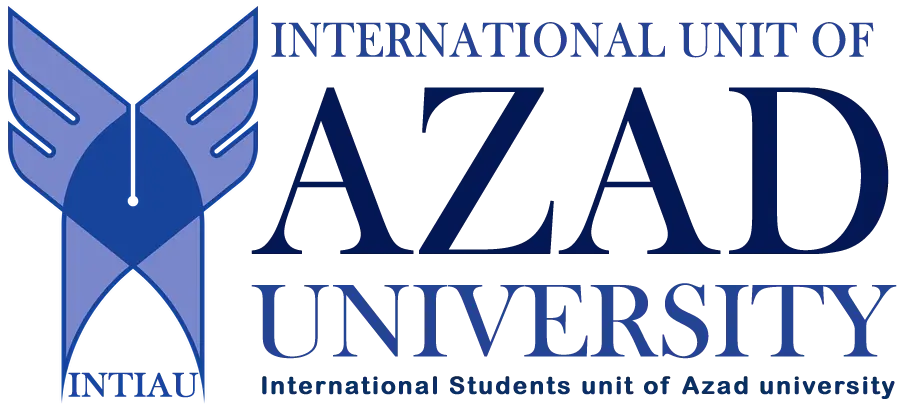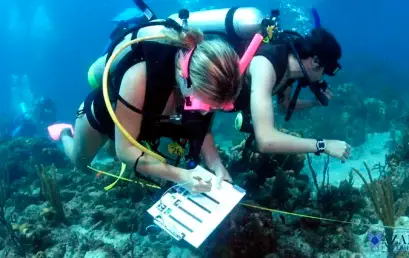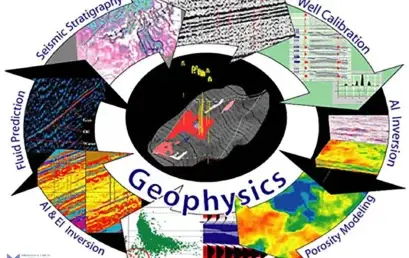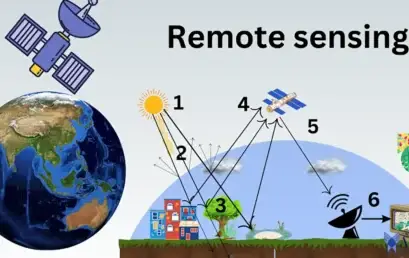Marine Biology INTIAU
Marine Biology: An Overview
Marine biology is the study of living organisms in the oceans and other bodies of saltwater. This field of biology encompasses a wide range of disciplines, from the study of individual organisms to the study of entire marine ecosystems.
Marine biologists study fish, sharks, sea turtles, whales, dolphins, corals, and other marine organisms. They investigate the physical and chemical properties of marine environments, as well as the interactions between organisms and their habitats. They also work to protect endangered species and preserve marine ecosystems.
One of the most exciting aspects of marine biology is the discovery of new species. Since the oceans cover over 70% of the Earth’s surface, there is still much to be uncovered and studied in the field of marine biology.
Career opportunities in marine biology are diverse and exciting. Marine biologists can work in academia, government agencies, conservation organizations, the fishing industry, and more.
Ultimately, marine biology helps us understand and appreciate the complex, interconnected web of life in the oceans, and the important role that these environments play in our planet’s health.
Linguistics International Azad University
Linguistics: The Science of Language
Language is one of humanity’s most distinguishing features. Whether through speech, writing, or even sign language, we use language to communicate with one another, convey our thoughts and feelings, and understand the world around us. But have you ever wondered how language works, or how it evolved over time?
Enter linguistics, the scientific study of language. Linguistics is a multidisciplinary field that draws on insights from psychology, anthropology, neuroscience, computer science, and other disciplines to investigate the structure, variation, and use of language.
Linguists explore topics such as phonetics (the study of speech sounds), syntax (the rules governing sentence structure), semantics (the meaning of words and sentences), and discourse analysis (how language is used in context).
One of the most fascinating aspects of linguistics is its ability to reveal how much we take language for granted in our everyday lives. We may not think much about the grammar we use or the dialects we speak, but linguists can show us how these patterns reflect our social backgrounds, cultural norms, and cognitive processes.
Whether you’re interested in studying linguistics formally or just curious about the science of language, there’s something for everyone to learn from this vibrant and constantly evolving field.
Geophysics
Geophysics is the study of the Earth’s physical properties, including its structure and processes. It is an important field of study that helps us better understand the Earth and its relationship with the surrounding environment. By using various techniques such as seismic imaging, electromagnetism, and gravity, geophysicists can map the subsurface of the Earth and make predictions about natural hazards, resource exploration, and environmental impacts.
One important aspect of geophysics is studying the Earth’s magnetic field. This field is generated by the Earth’s core and is essential for the functioning of our planet. Geophysicists measure the intensity and direction of the magnetic field to better understand changes in the core and potential geomagnetic storms that can disrupt our power grids and technology.
Another important area of geophysics is seismic imaging. By using waves generated by earthquakes or man-made sources, geophysicists can create detailed images of the subsurface structure of the Earth. These images can be used to locate oil and gas deposits, monitor geological activity, and even detect hidden archaeological structures.
Overall, geophysics plays a crucial role in helping us understand and appreciate the complexities of the Earth’s physical properties. It is an exciting field of study that continues to yield new insights and discoveries.
Cellular and Molecular Biology
Cellular and molecular biology are two fascinating and hugely important areas of scientific research. Together, they explore the fundamental building blocks of life, from the smallest cells to the most intricate biochemical pathways. At the cellular level, researchers investigate how cells function and communicate with one another, while molecular biology focuses on understanding the chemical processes that drive these functions.
One of the most exciting areas of research in cellular and molecular biology is the study of genetics. By decoding the genetic material that controls our traits and characteristics, scientists are unlocking the secrets of how our bodies work and how we can prevent or treat disease. Advances in genetic engineering techniques have also opened up exciting new possibilities for gene therapy and personalized medicine.
But the study of cellular and molecular biology is not just about genetics. Researchers are also exploring the complex biochemical pathways that regulate cellular behavior, studying the role of proteins, enzymes, and other molecules in cellular processes. Understanding these pathways is critical to developing new drugs and therapies for a wide range of diseases, from cancer to Alzheimer’s.
In short, cellular and molecular biology are crucial areas of scientific research that hold the key to unlocking many of the mysteries of life. As our understanding of these fields grows, we are likely to see many exciting breakthroughs in the years ahead.
Arabic Language and Literature
The Arabic language is a beautiful and complex language that has a rich history in literature and poetry. From the early classical poets like Al-Mutanabbi and Al-Arabi to the modern poets like Mahmoud Darwish and Nizar Qabbani, Arabic literature has evolved and prospered throughout the centuries.
The Arabic language and literature have a deep impact on the Arabic culture and society. The language is the language of the Quran and is used in religious rituals, literature, and poetry. Arabic literature spans centuries and is rich with tales of love, war, adventure, and more.
Though Arabic has similarities with other Semitic languages, it stands out for its clarity in grammar and vastness of vocabulary. The Arabic literature has inspired authors and scholars around the world with its depth and beauty.
Learning Arabic language and literature allows for a deeper understanding of the culture and history of the Arab world. It provides an opportunity to engage with the literary works and learn the language in its true context.
In summary, Arabic language and literature contain a fascinating and rich culture and history that continues to be an inspiration to the world.
Plant Genetics and Breeding
Plant genetics and breeding is a fascinating field that has paved the way for significant advancements in agriculture. Through the manipulation of plant genes, scientists and breeders have been able to develop crops that are more resistant to diseases and pests, have increased yields, and are better adapted to their environment.
One of the most important tools in plant breeding is the ability to identify and select for desirable traits, such as drought tolerance or high nutritional content, using molecular markers. This allows breeders to make more precise selections and accelerate the breeding process.
Another exciting development in plant genetics is the use of genome editing technologies, such as CRISPR-Cas9, which allows for precise changes to be made to the plant’s DNA. This technology has immense potential to improve crop productivity and quality.
As our global population continues to grow rapidly, the demand for food will only increase. Plant genetics and breeding offer an essential solution to help sustainably meet these needs and improve global food security.
INTIAU Toxicology
INTIAU Toxicology is a field of study that delves into the effects of toxic substances on living organisms and the environment. The field encompasses a vast range of topics, including the evaluation of chemicals, environmental toxins, and drug safety.
The impacts of toxic substances are not limited to physical harm within the body, but also extend to economic and social costs attributable to healthcare, environmental damage, and loss of productivity. Toxicology experts play a critical role in identifying the effects of chemicals and the risks to which individuals and communities are exposed.
Toxicology involves various studies of toxic substances through laboratory experiments, clinical trials, and environmental monitoring. It aims to minimize the harmful effects of toxic substances on human health and the environment. Toxicology is a rapidly advancing field, with new methods and techniques being developed to enhance the effectiveness of the evaluation of chemicals.
INTIAU Toxicology is an exciting field, with the potential to change the world for the better. The growing importance of toxicology in today’s society means that it is an excellent choice for aspiring scientists and professionals seeking to make a difference.
Remote Sensing and GIS
Remote Sensing and Geographic Information Systems (GIS) are powerful tools used by a diverse range of professionals. From city planners to ecologists, these technologies allow us to observe and analyze our world with unprecedented accuracy and detail. Remote sensing refers to the acquisition of information about the earth’s surface from sensors on airplanes or satellites. Data acquired this way is then transformed and processed using GIS. GIS allows users to manipulate, visualize, and analyze geographic data, enabling them to make more informed decisions.
The applications of remote sensing and GIS are vast, including land-use planning, natural resource management, disaster response, and environmental monitoring. These technologies have revolutionized the way we gather and analyze data, providing us with a greater understanding of our earth. As we move forward, technological advances in remote sensing sensors and GIS software will only deepen our understanding of earth’s systems and allow for more comprehensive and precise analysis. As a result, remote sensing and GIS will continue to play a crucial role in shaping our world.
INTIAU Cultural Policy
Cultural policy refers to a government or institutional set of guidelines that promote social, economic, and cultural welfare in a particular society. The objectives of cultural policy are to preserve the country’s cultural heritage, provide support to those who wish to create arts and culture, and to provide access to cultural events and activities. Cultural policy also involves funding of programs that can facilitate cultural diversity and promote peace, tolerance, and understanding.
In today’s modern and global world, cultural policy plays an increasingly vital role in shaping social perspectives and building intercultural connections. A well-planned cultural policy creates long-term growth in the creative industries, stimulates innovation, and attracts quality tourism. Cultural policy can also provide equal opportunities for cultural expression and access to audiences.
The dynamic development of cultural policy can bring enormous benefits to a community. It is the role of both governments and institutions to continue to reflect on and develop cultural policy so that it can remain relevant and effective in contributing to cultural social and economic growth in society.
Azad University Parasitology Course
Ready to take your knowledge of parasites to the next level? Look no further than Azad University’s Parasitology Course! In this course, you’ll gain a comprehensive understanding of parasites, their life cycles, and how they interact with their hosts. You’ll also learn about the impact of parasites on human and animal health, as well as the latest advancements in parasite research. With experienced instructors and hands-on learning opportunities, you’ll be equipped with the skills and knowledge to pursue a career in parasitology or related fields. Don’t let this opportunity pass you by – enroll in Azad University’s Parasitology Course today!










